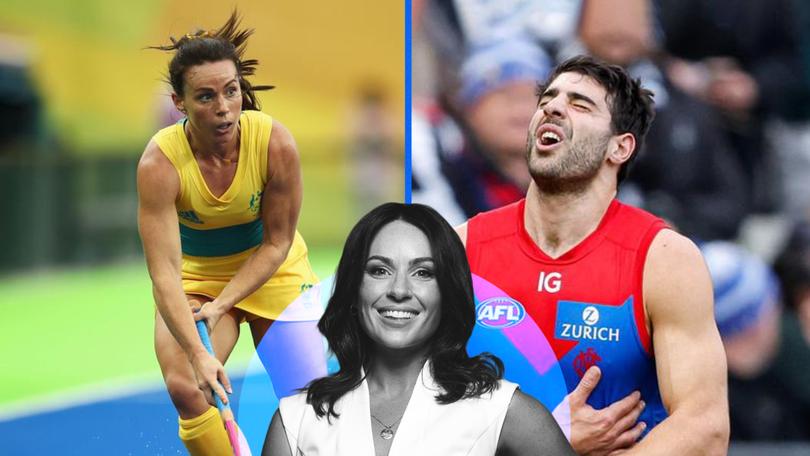GEORGIE PARKER: Christian Petracca injury opens up debate over if the player should have final say when hurt
Christian Petracca says there is no one to blame but himself for playing while badly hurt. I know what it is like to push through the pain barrier for the team though I wish now maybe I had not.

A huge part of being an athlete is putting yourself in uncomfortable physical positions that others won’t.
Mostly it’s the gruelling pre-season on the track and in the gym.
Having lost Christian Petracca for the season the Demons have come under intense scrutiny for letting the star play on when he had several broken ribs and ended up with a punctured lung.
Sign up to The Nightly's newsletters.
Get the first look at the digital newspaper, curated daily stories and breaking headlines delivered to your inbox.
By continuing you agree to our Terms and Privacy Policy.As much as the AFL have said they are comfortable with how Melbourne handled the injury, you’d be crazy to believe that if they had their time again they wouldn’t have handled it differently. But who is at fault?
Is it Petracca, who told fans that he was the one who decided to go back on? The doctors, who initially missed the early signs of this severe injury? The coaches or the club, who are the ones who put the doctors under pressure?
When it comes to injuries away not involving the head, I don’t think it’s a blame game. But, it is a reminder that everyone’s agenda is different depending on their role, and that dictates what decisions are made. A coach needs to win, a doctor needs the list to be healthy, and a player just wants to play - regardless on how they feel.
Only since being retiring from sport do you realise the incredibly difficult position doctors and physiotherapists have in clubland. They have to handle athletes who are injured, and a coach who wants them to be on the field. There is even more pressure on the medical staff when that player is the star of the show
Every player in every team would have a different experience, however my experience with medical staff is I wish I had had more foresight.
I am 35; not young, but most definitely not old. I can’t sit with my knee bent for too long and even lying down hurts my knee if it’s at the wrong angle. Could that be because I was given the choice of playing eight matches at the Commonwealth Games with my knee in absolute shreds as opposed to being told no, your body isn’t OK?
Ankle mobility? What’s that? Is that just because I’m getting older, or because I played seven matches with three fully ruptured ligaments in my ankle because the coach needed me to play and I was too worried I’d be looked upon poorly if I said no?
I once even played an international match two days after getting out of a Belgium hospital with a severe infection because we were trying to qualify for the Olympics. Looking back it was absolute insanity.
I’m of course not blaming my doctors or my physics for this, because in hindsight, I should have said I’m not up for it - that’s on me. But, most athletes are stoic. We don’t get to where we get to without grit, a bit of delusion, and without pretending the pain doesn’t exist. No pain, no gain, right?
So when it comes to pulling yourself off the field, more often than not the athlete isn’t going to do it, particularly in games that are do or die.
So, as an older, wiser and sorer athelete no longer playing, I’d have loved it if someone spoke for me and actually separated my wants and my team’s wants from my body’s needs. That’s the role of the medical staff and I don’t envy them for it.
The way club doctors handle professional athletes is going to be different than your regular doctor handling your regular person.
There needs to be a more aggressive way of handling injuries because otherwise you wouldn’t get a team on the park. But, just like a kid doesn’t know that they’re tired, an athlete doesn’t know they’re going to be doing serious long-term damage by ignoring the pain and saying they can play on.
So maybe the athlete doesn’t know best?
With a knee replacement likely down the track I just wished I’d worked that one out earlier.
